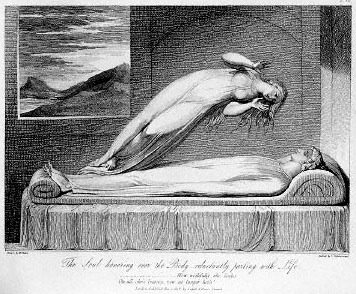
I have to admit that I was intrigued to see this item, and that I’m very curious to find out more about what the speaker will be saying:
“Can the human soul be a scientific concept? One ivy league neuroscientist says, “Yes!””
He seems to be taking a rather daring and unfashionable position, and I’m eager to see what the reaction to his thesis will be.
Still, to be frank, my initial interest was tempered somewhat when I realized that Dr. Ferguson is proposing correspondences with the ancient Greek philosopher Aristotle’s view of the “soul,” as that is set forth, for example, in such works as the De anima.
Why? Because the conception of the spirit or soul that interests me — and that, in my judgment, is entailed and required by the doctrines of the Restoration — is nothing at all like Aristotle’s notion of entelechy or first entelechy. Rather, as I read it (and I find myself unable to read it any other way), our view of the history of the individual human and of the Plan of Salvation requires adherence to a more or less dualistic understanding of spirit and body, to what is often termed “substance dualism.”
So is the position for which Dr. Ferguson will argue really going to be of any direct use or interest to someone who holds such views as mine?
Well, we shall see.
It turns out, looking at his resumé, that, prior to his postdoctoral research fellowships at Cornell University (in cognitive neuroscience, 2015-2017) and Harvard University (in cognitive neurology, 2017-present), he graduated from Brigham Young University with a B.S. in biochemistry and earned a Ph.D. in bioengineering at the Brain Network Laboratory of the University of Utah. These two latter academic affiliations strongly suggest that he is aware of Latter-day Saint notions of the spirit or soul and that he probably once was, and may well still be, personally committed to them.
These famous lines from William Wordsworth’s “Ode on Intimations of Immortality from Recollections of Early Childhood” have long been popular among Latter-day Saints, and for obviously very good reason;
Our birth is but a sleep and a forgetting;
The Soul that rises with us, our life’s Star,
Hath had elsewhere its setting
And cometh from afar;
Not in entire forgetfulness,
And not in utter nakedness,
But trailing clouds of glory do we come
From God, who is our home.










